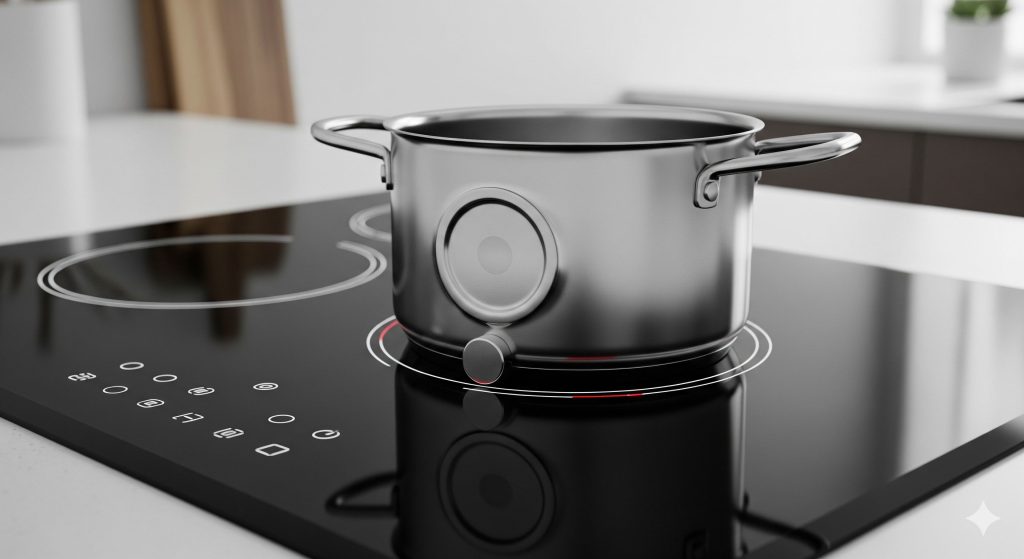
Buying new pans can get confusing fast. One minute you’re picking a size, the next you’re squinting at labels like “induction ready” or “magnetic bottom cookware,” feeling like you wandered into a physics class. In your kitchen, induction cooktops don’t heat the air or the surface – they heat the pan directly using electromagnetic energy. If your pan isn’t compatible, it won’t heat at all, no matter how shiny it looks.
What Makes Cookware Induction-Friendly?
This isn’t about expensive metals or fancy coatings; it’s about how the pan interacts with the cooktop. The key is a magnetic base. Without that, nothing will happen. Cast iron and some stainless steel work well. Aluminum, copper, or glass? They fail unless a magnetic layer is added to the bottom, making them unsuitable for most kitchen equipment setups.
Look for these features:
- Induction labels: Words like “induction ready” or “compatible with induction.”
- Flat magnetic bottoms: The base must sit evenly on the cooktop.
- No warping: Even steel won’t heat properly if the base is uneven.
How to Test a Pan
The magnet trick is simple but effective. Press a small magnet to the pan’s base; if it sticks firmly, the pan will work.
Other hints include:
- Symbols resembling coils or loops stamped on the pan.
- Packaging notes stating induction compatibility.
- Manufacturer specifications confirming it works with electromagnetic heat.
Even among induction-ready pans, performance varies. Thick bases deliver more consistent heat, while thin bottoms produce uneven cooking. Cast iron performs especially well, and high-quality stainless steel often surprises with steady heat distribution.
Why Magnetic Bases Matter
Magnetic bottoms do more than meet a requirement; they improve the cooking experience. Pans heat quickly, cook more evenly, and use less energy. When the pan and cooktop connect properly, even weeknight dinners feel smoother. Investing in cookware that works with induction avoids wasted money, speeds up cooking, and keeps the kitchen less stressful.
Understanding what “induction ready” truly means protects your investment. Check the magnetic base, confirm compatibility, and pay attention to material and thickness. Small differences can change cooking dramatically. Knowing your tools gives control over heat, timing, and results, turning cooking into a more precise, satisfying process.